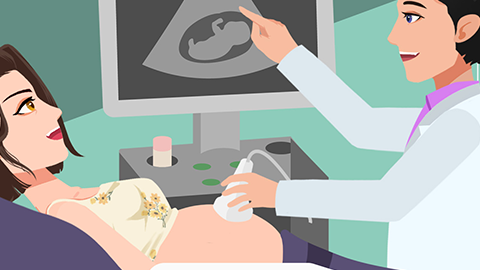What abnormalities can be detected through regular prenatal checkups?
Antenatal examination refers to prenatal checkups. Generally, regular prenatal examinations can detect abnormalities such as gestational diabetes, gestational hypertension, abnormal fetal position, fetal malformations, and neural tube defects. Detailed explanations are as follows:

1. Gestational Diabetes
An oral glucose tolerance test conducted between 24 and 28 weeks of pregnancy can screen for gestational diabetes. If blood glucose levels exceed the normal range, the pregnant woman may be diagnosed with gestational diabetes.
2. Gestational Hypertension
Regular blood pressure monitoring during pregnancy can detect gestational hypertension. If systolic blood pressure is ≥139 mmHg and/or diastolic blood pressure is ≥89 mmHg, accompanied by symptoms such as proteinuria (excess protein in urine) and edema, a diagnosis of gestational hypertension can be made.
3. Abnormal Fetal Position
Ultrasound examinations can detect fetal positioning issues in a timely manner. If the fetal position is breech or transverse before 28 weeks of pregnancy, it is considered an abnormal fetal position. An abnormal fetal position may affect the mode of delivery and requires correction under a physician's guidance.
4. Fetal Malformations
Prenatal ultrasound examinations, especially specialized fetal echocardiography, can clearly visualize the structure and function of the fetal heart, identifying congenital heart defects such as atrial septal defect, ventricular septal defect, and tetralogy of Fallot.
5. Neural Tube Defects
Serum screening during early pregnancy and detailed anomaly ultrasound scans during the second trimester can help detect neural tube defects such as anencephaly and spina bifida. A markedly elevated level of alpha-fetoprotein in serum screening or ultrasound findings such as open or closed spinal defects, or absence of cranial bones in the fetus can lead to a diagnosis.
Pregnant women are advised to undergo regular prenatal checkups to promptly monitor their health status and fetal development. Additionally, maintaining healthy lifestyle habits such as balanced nutrition and moderate exercise can help support a healthy pregnancy.








